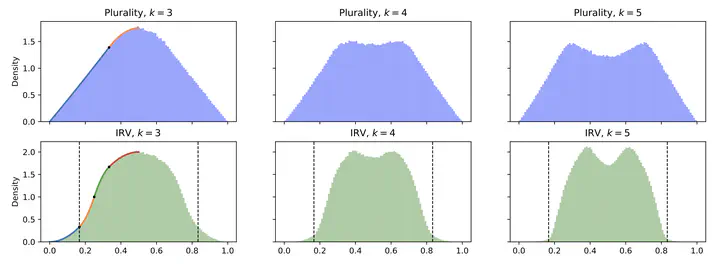
Abstract
Instant runoff voting (IRV) has recently gained popularity as an alternative to plurality voting for political elections, with advocates claiming a range of advantages, including that it produces more moderate winners than plurality and could thus help address polarization. However, there is little theoretical backing for this claim, with existing evidence focused on case studies and simulations. In this work, we prove that IRV has a moderating effect relative to plurality voting in a precise sense, developed in a 1-dimensional Euclidean model of voter preferences. Our results show that as long as voters are symmetrically distributed and not too concentrated at the extremes, IRV cannot elect an extreme candidate over a moderate. In contrast, we show plurality can. Our methods develop new frameworks for the theoretical analysis of voting systems, deriving exact winner distributions geometrically and establishing a connection between plurality voting and stick-breaking processes.